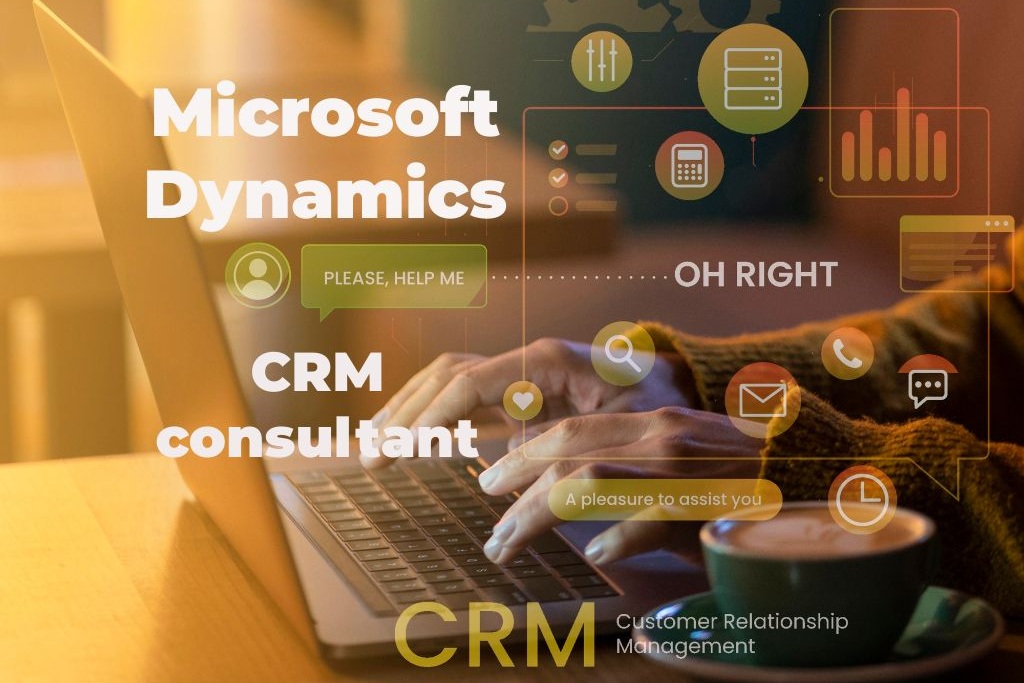Unlock the power of Microsoft CRM integration. Customized solutions for seamless data flow. Experience enhanced performance now!
Businesses need to manage customer relationships efficiently. For this purpose, we need to properly integrate customer relationship management software into business that helps track, organize, and enhance customer interaction.
Although many CRM solutions are available, Microsoft Dynamics CRM has emerged as a powerful and versatile tool that can significantly improve the customer experience and streamline business processes.
Let us explore the benefits of Microsoft CRM integration and how seamless Microsoft CRM Integration Services can help businesses improve customer satisfaction faster.
Understanding Microsoft CRM Integration Services
Seamless Microsoft CRM integration services are a professional service provided by certified Microsoft Dynamics CRM Partners to businesses that need to automate workflow in business, improve communication channels with customers, and elevate the customer experience.
In this service, Microsoft Dynamics CRM developers understand the business needs and prepare cost-effective plans for implementing CRM in business without affecting concurrent business work.
Step-by-step Guide for Microsoft CRM Integration
Discover the secrets of successful Microsoft CRM integration. Our step-by-step guide ensures a hassle-free implementation process.

#1. Assess business needs:
Before integrating Microsoft Dynamics CRM software, we must evaluate the business requirements and goals. Dynamics CRM partners must identify the specific functionality of Microsoft Dynamics CRM software that can be aligned with existing business systems and processes.
#2. Choose the Right Version of Microsoft Dynamics CRM:
Technology keeps changing and evolving with time. So we must ensure that we offer the latest version of the Microsoft Dynamics CRM suite. By understanding the specific business needs, we must consider whether we provide cloud-based dynamics CRM integration.
#3. Plan the Integration Strategy:
Create a detailed integration strategy outlining the scope, objectives, and timeline. Identify the data and workflows that require integration, the involved teams, and the essential key performance indicators (KPIs) for evaluating the integration’s effectiveness.
Read: Why Businesses need Dynamics CRM Consultants
#4. Data Migration and Clean-up:
Prepare your existing data for migration to Microsoft Dynamics CRM. Ensure the data is accurate, consistent, and cleansed to prevent duplicates and errors during migration.
Utilize data mapping to match fields between your current systems and Microsoft Dynamics CRM.
#5. Choose the integration method:
Select the appropriate integration method based on your business needs and available resources. There are several integration options, including:
#6. Out-of-the-Box Connectors:
Microsoft Dynamics CRM offers pre-built connectors to applications like Microsoft Office 365, Outlook, and SharePoint.
#7. Custom Integrations:
If you have specific business requirements, you may need to develop custom integrations using APIs (application programming interfaces) or middleware tools.
#8. Third-Party Integration Tools:
Consider using third-party integration platforms that offer pre-built connectors and workflows to simplify the integration process.
#9. Test the integration:
Before going live, conduct thorough testing of the integration to ensure that data is synchronized accurately between Microsoft Dynamics CRM and other systems. Perform both unit testing and end-to-end testing to validate the entire integration process.
#10. Train Employees:
Provide comprehensive training to your employees on how to use Microsoft Dynamics CRM effectively. Ensure they understand the new system’s features and benefits and how it will streamline their workflows.
#11. Monitor and Optimize:
After the integration is live, monitor its performance and gather user feedback. Continuously optimize and refine the integration to address any issues or enhance efficiency.
#12. Ensure Data Security and Compliance:
If it applies, ensure to implement measures for data security during the integration process and adhere to the necessary data protection regulations, such as GDPR or HIPAA.
#13. Provide ongoing support:
Offer ongoing support and assistance to users after the integration. Address any questions or issues promptly to ensure a smooth transition and successful adoption of Microsoft Dynamics CRM.
Benefits of Microsoft CRM Integration services
Experience enhanced efficiency with Microsoft CRM integration services. Unleash the benefits of seamless data flow and unified processes.

#1. Centralized Customer Data:
Seamless integration of Microsoft CRM with other systems consolidates customer data from various sources into a unified platform.
This centralization provides a 360-degree view of each customer, enabling businesses to access comprehensive information about their interactions, preferences, and purchase history.
Having all data in one place enhances decision-making and facilitates personalized customer engagements.
#2. Streamlined Workflows:
Integration automates workflows and processes, eliminating manual data entry and reducing human errors. By streamlining various tasks, businesses can enhance operational efficiency, allocate resources more effectively, and focus on strategic initiatives that drive growth.
#3. Improved Customer Experience:
Seamless CRM integration allows businesses to deliver consistent and personalized customer experiences.
Armed with comprehensive customer insights, sales and support teams can engage customers more effectively, cater to their specific needs, and address their concerns promptly, leading to higher customer satisfaction and loyalty.
#4. Real-Time Data Access:
With seamless integration, relevant customer data is accessible in real-time, enabling teams to respond promptly to customer inquiries and requests.
This timely access to information helps deliver better customer service and fosters stronger customer relationships.
#5. Enhanced Sales and Marketing Alignment:
The integration enables seamless data sharing between sales and marketing teams. Marketing campaigns can be tailored based on accurate customer data, and sales teams can access real-time customer insights to drive more effective sales strategies.
This alignment improves lead generation, nurturing, and conversion rates.
#6. Increased Productivity:
By integrating systems and automating repetitive tasks, employees’ time is liberated, enabling them to concentrate on more strategic endeavors. This increased productivity leads to better resource utilization and overall organizational efficiency.
#7. Scalability and Flexibility:
Seamless Microsoft CRM integration services cater to the evolving needs of businesses. As the organization grows or adopts new technologies, the integrated CRM solution remains agile and scalable, ensuring it continues to support the business’s growth.
#8. Data Accuracy and Integrity:
Integration reduces the risk of data inconsistencies and errors when managing separate systems. By ensuring the accuracy and integrity of data, businesses can have confidence in relying on a unified and trustworthy source of information for making decisions.
#9. Cost-Effectiveness:
Integration reduces the need for manual data transfers, duplicate efforts, and additional resources to maintain separate systems. Small and medium-sized businesses with constrained budgets can particularly reap the advantages of this cost-effectiveness.
#10. Competitive Advantage:
Businesses achieve competitive benefits in the market by optimizing processes and providing exceptional customer experiences. Integrating Microsoft CRM can help organizations differentiate themselves and stand out from competitors.
Conclusion
To sum up, seamless Microsoft CRM integration services enable businesses to harness the complete capabilities of their CRM system, optimize processes, and cultivate more robust customer relationships.
The advantages encompass increased efficiency, elevated customer contentment, improved decision-making, and a stronger competitive stance across various industries and business sizes.
As a result, seamless CRM integration proves to be a worthwhile and valuable investment for enterprises.
Streamline your business with "Microsoft CRM integration services". Seamlessly connect and optimize your processes. Get started today!#CRM #crms #microservices https://t.co/TkyaGMFkHw
— Technoligent (@Technoligent) July 28, 2023
More CRM-related posts:
- Best Ways to Boost Sales Performance With a CRM Mapping Tool
- CRM: A Roadmap on Creating Ultimate Successful Customer Journey
Follow Us on Facebook and Twitter for more CRM Updates and Information.




